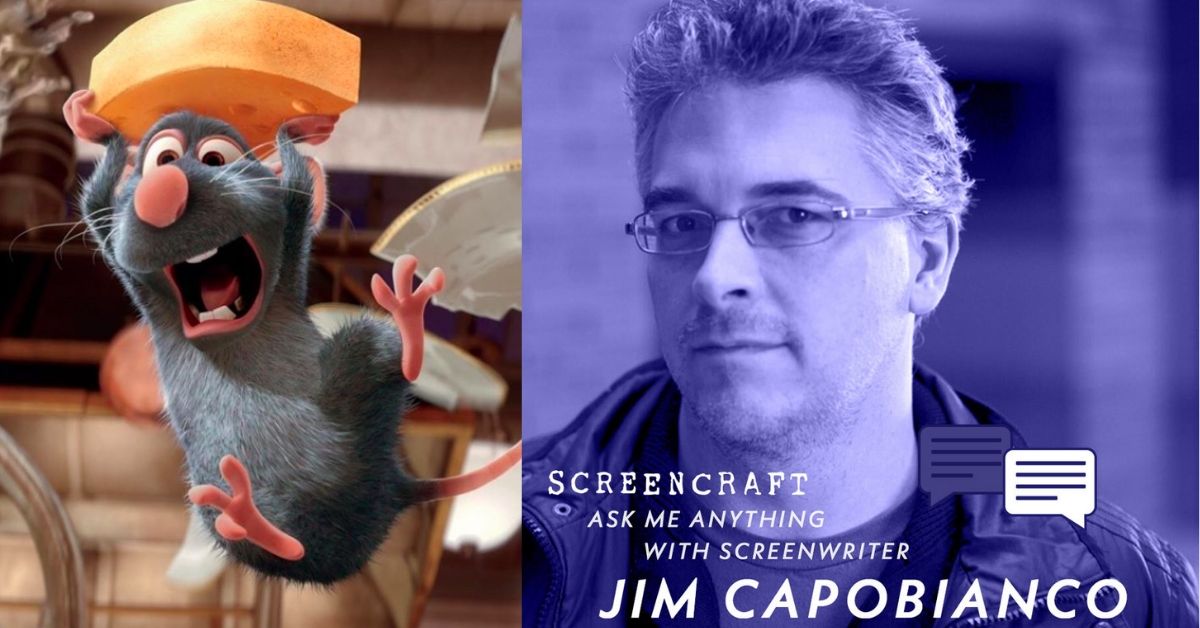
I’ll be the first to admit when I’m struggling on a screenplay.
I’m struggling.
I’m on the third pass of one of my favorite projects -- a piece that I’ve plagiarized pages out of the book of my own reality and spun into a fictitious trek of utter exaggeration. It’s a script I hate to love, and by that definition, a tough sell. Especially because the lead character is a narcissistic elderly has-been incapable of fulfilling his moral obligations of a human being -- let alone, a father.
And...we’re supposed to love him.
My mind darts right to my favorite Pixar flick, Up. Perhaps it’s those first ten minutes that give Carl Fredrickson, the ultimate curmudgeon, a pass to behave however the filmmakers choose. However, I still can’t get past what that initial pitch must have been met with. A family film led by a widowed senior citizen angry at the world around him. And yet, it worked.
Protagonist likability is a constant concern found within pages and pages of screenplay notes across the industry. It's understandable, the thinking being that if audiences don't like the main character (or in the case of an antihero, at least find them interesting), they won't like the movie. It’s the fallback note on material that readers don’t connect with. While everyone reads under their own sensibilities, here are five reasons why readers might not like your character that may not directly relate to your intention as the writer.
1. There isn’t enough between the lines. Let’s say your character is a loudmouth. Hates everything and everyone and isn’t afraid to voice his/her opinion in all matters. Each string of dialogue screams vulgarity and the entire screenplay is based on his/her ability to creatively expel expletives. In the words of Desi Arnaz, “You’ve got a lot of explaining to do…” And perhaps that’s just it. What can you tell us about the character that will shed some good, angelic light on their dialogue? Novels allow this in abundance, screenplays do not. However, you can give GLIMPSES into the mind of your characters when the action allows for it. Most great screenplays do. Finding the right spots to layer this in will help justify all that naughty talk…
2. They’re interpreting a hidden agenda. Let’s say your latest screenplay is all about men saving women. The men are big and strong, the women are weak and helpless. At its core, that’s 90% of superhero stories. However, those movies are based on pre-existing IPs and have a built-in audience that understands and accepts the fundamental (flawed) nature of “saving the girl.” Your work is entirely original, and although you may not intend to portray sexist stereotypes, you may be falling victim to them nonetheless. You’ll never be able to please everybody with your screenplay, but you should have an understanding of current social trends. In fact, this is your chance to pave a new path. Sure, a gender swap may be worthwhile, but building stories outside of these (tired) stereotypes can only help in making fans out of your readers. Don’t inadvertently offend by taking the easy way out. Your story will thank you later.
3. Your voice is mean. This takes us back to grade school, but I’ve read enough screenplays to stake this claim. Some people write mean. They have a cynical snark on the page that immediately subverts the reader to pass that snark onto the story. While your lines of action should be concise, perhaps around 140 characters, your screenplay doesn’t need to read like your Twitter feed. Keep it neutral, ebbing and flowing with the tone of your story.
4. You’re gratuitous. Superstar comedians -- whether you agree with their humor or not -- have earned enough street cred to “get away” with politically insensitive material. Remember, readers don’t know you. They’ve never heard your inflections nor do they understand your comedic rhythms. As such, you're tasked with doing the impossible -- make your tone crystal clear. Note that I didn’t say crystal CLEAN -- instead, work on your rhetoric so the patterns of your comedy (dirty or otherwise) are understood and accepted from page one. Jarring insults outside of the tone you’ve previously established will derail the flow of the page. The result: readers will close the script.
5. Your character is just plain bad. There is always a tipping point. Killing a dog is irreversible on the likeness scale. Some actions in life are nearly unforgivable. If you choose to put your character through those paces, it may take a lot longer than 120 pages to redeem them. In fact, some people may choose to hate your characters out of moral obligation in line with their own beliefs. In general, the moral code of good vs. evil is fairly universal. Stepping outside of those bounds can really limit the scope and appeal of your script. Decide before page one if that is something you’re willing to tackle.
Bottom line: take a pass at your draft while focusing only on the likability of your protagonist. Read for nothing other than the ticks for and against their behaviors, both from the character and said about the character. Make sure that what you intend your audience to think and feel is present on the page. While your moral compass may not align with that of your readers, their power in passing your screenplay forward is undeniable. Consistency and clarity is key. Nail that, and your character can do whatever you want them to, good, bad, or indifferent.
Tags
Get Our Screenwriting Newsletter!
Get weekly writing inspiration delivered to your inbox - including industry news, popular articles, and more!


























